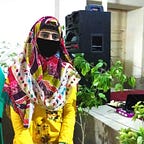what is Poetry
(types, rules, forms, benefits, significance and importance of poetry)
Poetry
· Discovery
The word poetry comes from the Greek word creator.
Poetry has very deep and long historical background. It is the oldest form of literature and it is the first thing which was being spoken, heard, write and read. It is very amazing fact that all the branches of knowledge such as history, dramas, mathematics, politics and sciences were in the poetic form.
· What is poetry?
According to,
1. P.B Shelly asserts: “poetry in general sense may be defined as the expression of imagination”.
2. William Words Worth says: poetry is the spontaneous overflow of powerful feeling and emotions.
3. Ruskin is of the view; poetry is suggestion by imagination of noble grounds for noble emotions.
Poetry is an art and any poet are an artist. Poetry is the result of experience, emotions, feeling, passion, imaginations, fancies, thoughts and ideas of poet.
Examples
2-shaheen
· Types/kinds of poetry
Poetry has two types in written
Objective poetry: is a message of specific purpose. Example: universal, epic etc.
Subjective poetry: is a personal expression of a poet. Example: personal, lyrics etc.
In general, there are following types of poetry
Lyrical:
poems that express personal feelings and emotions.
Narrative:
tells a story with characters, problems and solutions.
Humorous:
funny, silly and sometimes fantastical.
Fra-verses:
does not follow a pattern. Does not have consistent rhyme or rhythm.
· Elements of poetry
There are of following elements of poetry:
1. Stanza:
Stanza is a poem equivalent to a paragraph
Types of stanza
1. 2 lines stanza (couplet)
2. 3 lines stanza (tercet)
3. 4 lines stanza (Quatrain)
4. 5 lines stanza (cinquain)
2.Rhyme:
Rhyme is when two words sounds the same when spoken.
Example: Day and Sway, thought and bought, bright and night,
star and far and sent and went etc.
(rhyme words don’t have to be spelled the same. e.g. two and to)
Rhyme creates a pattern. These patterns are called rhyme scheme
3.Tone
Tone is the attitude of the poem.
Tone is created by words choice, regular or irregular meter, figurative language and rhyme.
4.Imagery
Poems are generally pretty short. That means they need to pack a lot of meaning in a short time.
Figurative language
A lot of tools fall under this element. You will recognize them as they go by:
Smile hyperbole
Symbolism cliché
5.Rhythm
An iamb is a metrical foot consisting of an unstressed syllable followed by
a stressed syllable.
Those are 5 most basic elements of poetry.
· Forms of poetry
There are following forms of poetry
Sonnet:
It is invented by Dante around 13 or 14 Century. It is 14 lines short rhyming poem.
Odd:
It is a type of “lyrical stanza”.
It is a structure designed to glorify something.
Lyrics:
Expressing personal feeling and thoughts.
There are three broad categories of poems.
1-Lyrical 2-dramatic 3- epic poem
Elegy:
It is a sad poem
Satire:
The use of humor to attack a person, an idea or behavior that you think is bad or silly.
· Rules of poetry
There are following rules of poetry
1. Avoid clichés
Clichés are someone else’s words. Use of clichés will make your readers
turn away the moment.
2. Keep the reins on your rhyme
“No more rhymes now, I mean it!”
“Anybody want a peanut?”
3. Pay attention to form
Make their line about the same length. Think that how to use empty space in a poem.
4. Don’t overdo anything
Poetic devices like similes, alliteration, repetition, anapest, and
onomatopoeia is a great way to add impact to your writing,
but overuse can make your poem seem silly.
5. Be yourself
It is better that you should more honest in your poetry. If you are not honest in your poetry, no one else is going to be feel more genuine when they read your
· Benefits of poetry
There are following benefits of poetry
· Poetry makes you better public speaker because poetry was made to be read or told out loud.
· It forces the reader to convey a lot of meaning and information using a few words.
· The constraints force you to use stronger vocabulary.
· Poetry can be combined with other art forms. poetry can include music, dance, instruments and multiple languages etc. it has no limits.
· Poetry allowing you to connect yourself and others.
· Importance of poetry
There are following importance of poetry
1. Build reading, speaking and listening skill.
2. Explore language and vocabulary
3. Inspire writing
4. Build a love for reading
5. Children poetry books
· Significance of poetry
There are following significance of poetry
1. Voice your thoughts
2. Reveals reality
3. Express beauty
4. Depicts historical events
· Conclusion
There is no poetry without imagination.
Poetry is the result of experience or the series of experiences.
